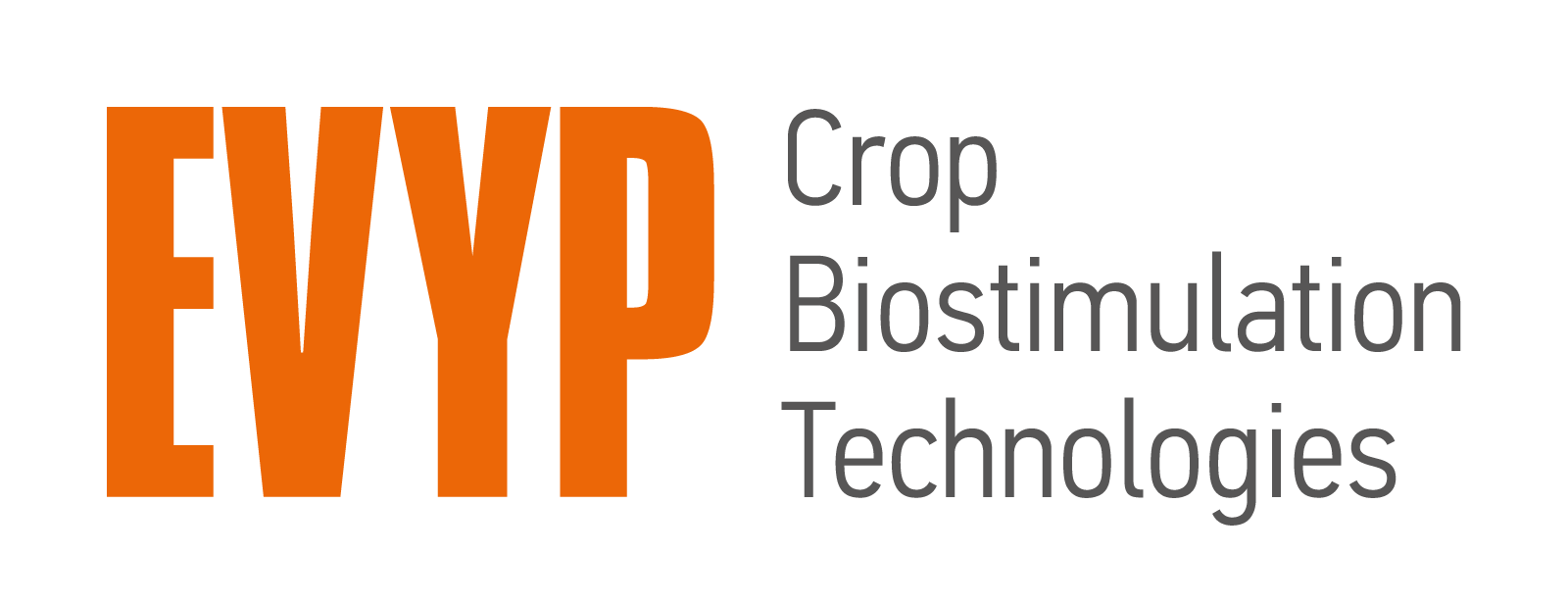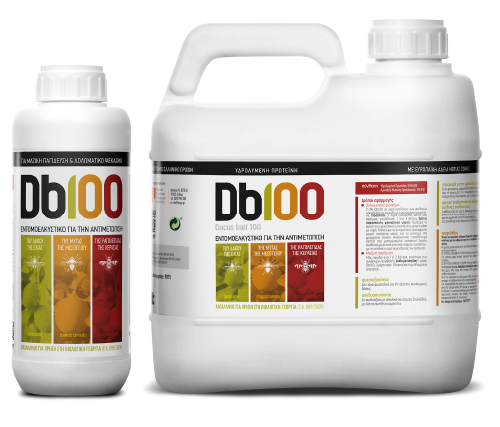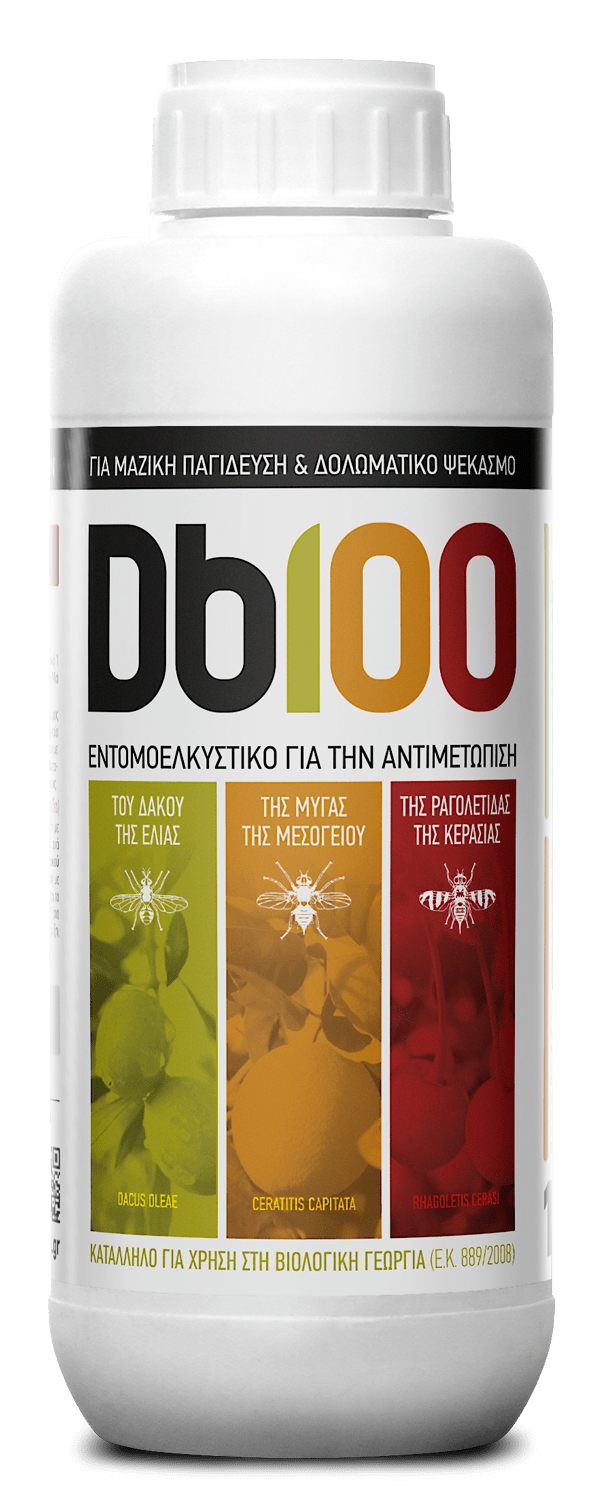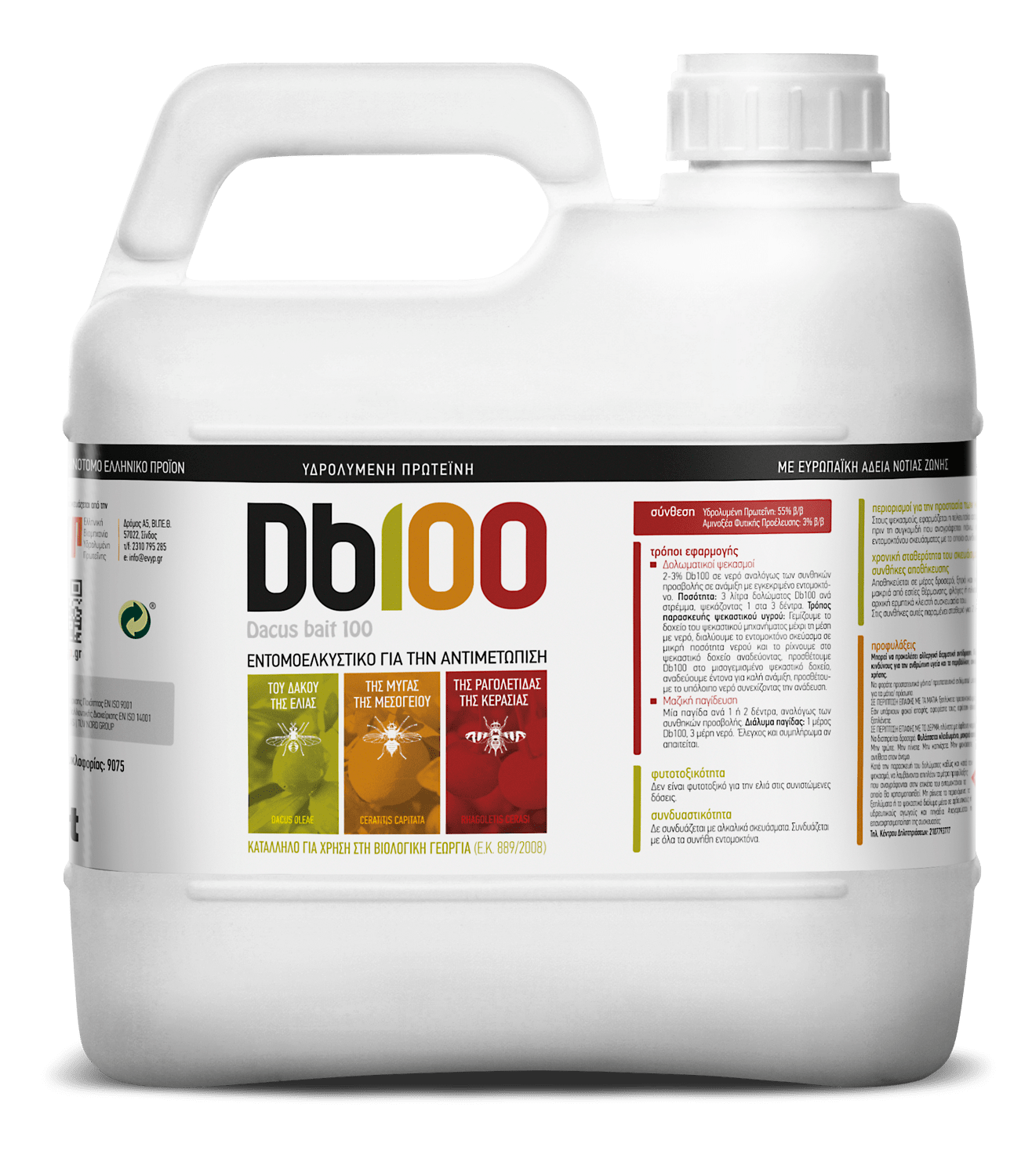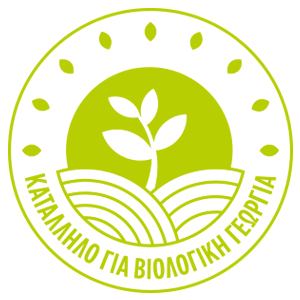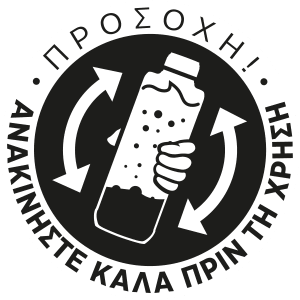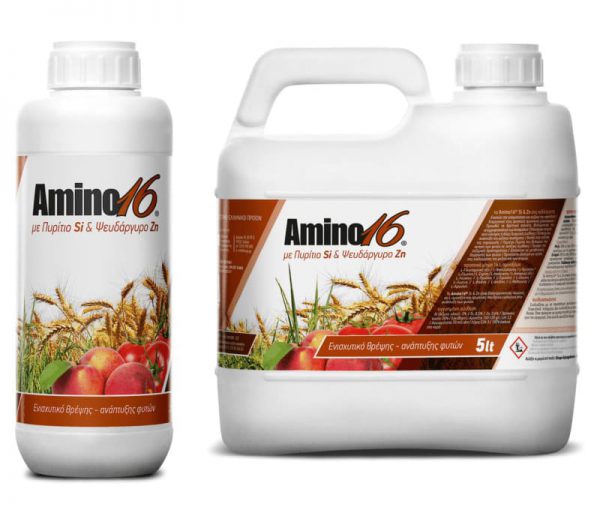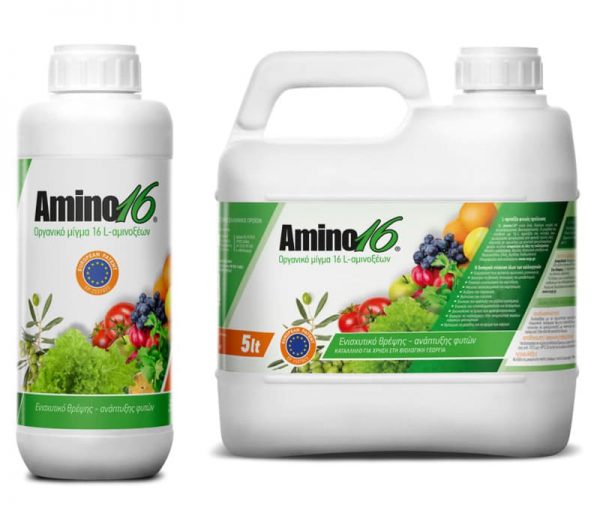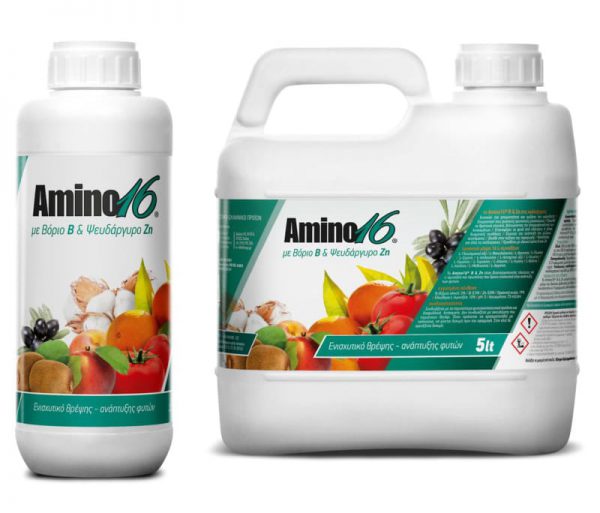Dacus bait 100
Dacus bait 100
Dacus Bait 100 is an insect attractant widely used for the management of the Olive fruit fly (Bactrocera Oleae), the Mediterranean fruit fly (Ceratitis Capitata) and the Cherry fly (Rhagoletis Cerasi). It is applied, depending on the insect, either by bait spraying or by mass trapping.
Dacus Bait 100 (Db100) is an organic blend of hydrolysed proteins and plant-derived amino acids. It is highly soluble, non-toxic, friendly to the environment and humans, and absolutely harmless to plants, beneficial insects and animals. The prevailing status of Db100 in the Greek market is affirmed by its continuous use since the 1970s by the Ministry of Rural Development and Food in the national Dacus oleae management program. Its influence has significantly enhanced the quality of Greek olive oil.
Its effectiveness has been scientifically documented by many studies of the Department of Entomology of the Aristotle University of Thessaloniki, the Agricultural University of Athens, the Institute for Olive Tree and Subtropical Plants of Chania, and Greek and European private research centres. At the same time, EVYP’s R&D department has conducted a series of experiments in collaboration with producers and agricultural enterprises on olive, citrus and cherry crops.
The success of Db100 extends beyond Greek borders. Db100 has an Authorisation for the European South Zone and a supplementary Marketing Authorisation for Albania, Turkey, Syria, Iran and Tunisia, where it is exported. Db100 is approved for use in organic farming (EC 839/2008).
Dacus bait 100:
- Is particularly soluble in water.
- Is easy to use in small and/or inaccessible olive groves.
- Can be combined with all approved insecticides.
- Helps to reduce the cost of pest control due to much less insecticide use.
- Is approved for bait spraying and for use in traps.
- Is environmentally friendly, non-toxic and leaves no residue.
Bait Spraying
Bait spraying offers a diminished reliance on insecticides, significantly lowers residue levels, ensures production protection, and delivers economic advantages for producers. Db100 can be combined with all approved insecticides.
Olive trees: 2-3% Db100 in low-volume (LV) bait sprayings from the ground and depending on the infestation, mixed with an approved insecticide at a 3‰ dosage or at the dosage indicated by the authorisation of the insecticide.
Quantity: 3lt bait per 1,000 m², spraying one branch in every three trees.
Application: 5-6 times per growing season.
Citrus fruit: 2-6% Db100 in low-volume (LV) bait sprayings from the ground and depending on the infestation, mixed with an approved insecticide at a 3‰ dosage or at the dosage indicated by the authorisation of the insecticide.
Quantity: 3lt bait per 1,000 m², spraying one branch in every three trees.
Application: 2-3 times per growing season.
Cherry trees: 3-6% Db100 in low-volume (LV) bait sprayings from the ground and depending on the infestation, mixed with an approved insecticide at a 3‰ dosage or at the dosage indicated by the authorisation of the insecticide.
Quantity: 3lt bait per 1,000 m², spraying one branch in every three trees.
Application: 2-3 times per growing season.
Mass Trapping
Mass trapping eliminates the use of pesticides, does not attract beneficial insects and bees, enables the reuse of the traps, provides protection (assurance) of production and economic benefits for producers.
Olive trees: 700ml solution (25% Db100 & 75% water) per trap with a capacity of 1.5lt.
Quantity: One trap per tree in normal density orchards. Check the traps every 3-4 weeks depending on environmental conditions and refill if necessary.
Application: The trap is placed on the trees at the end of June.
Citrus fruit: 700ml solution (25% Db100 & 75% water) per trap with a capacity of 1.5lt.
Quantity: One trap per tree in normal density orchards. Check the traps every 3-4 weeks depending on environmental conditions and refill if necessary.
Application: The trap is placed on the trees in September.
Db100 should not be combined with alkaline formulations. The above dosages are indicative and depend on the planting density and extent of infestation. For more information, please ask your agronomist or contact us.
